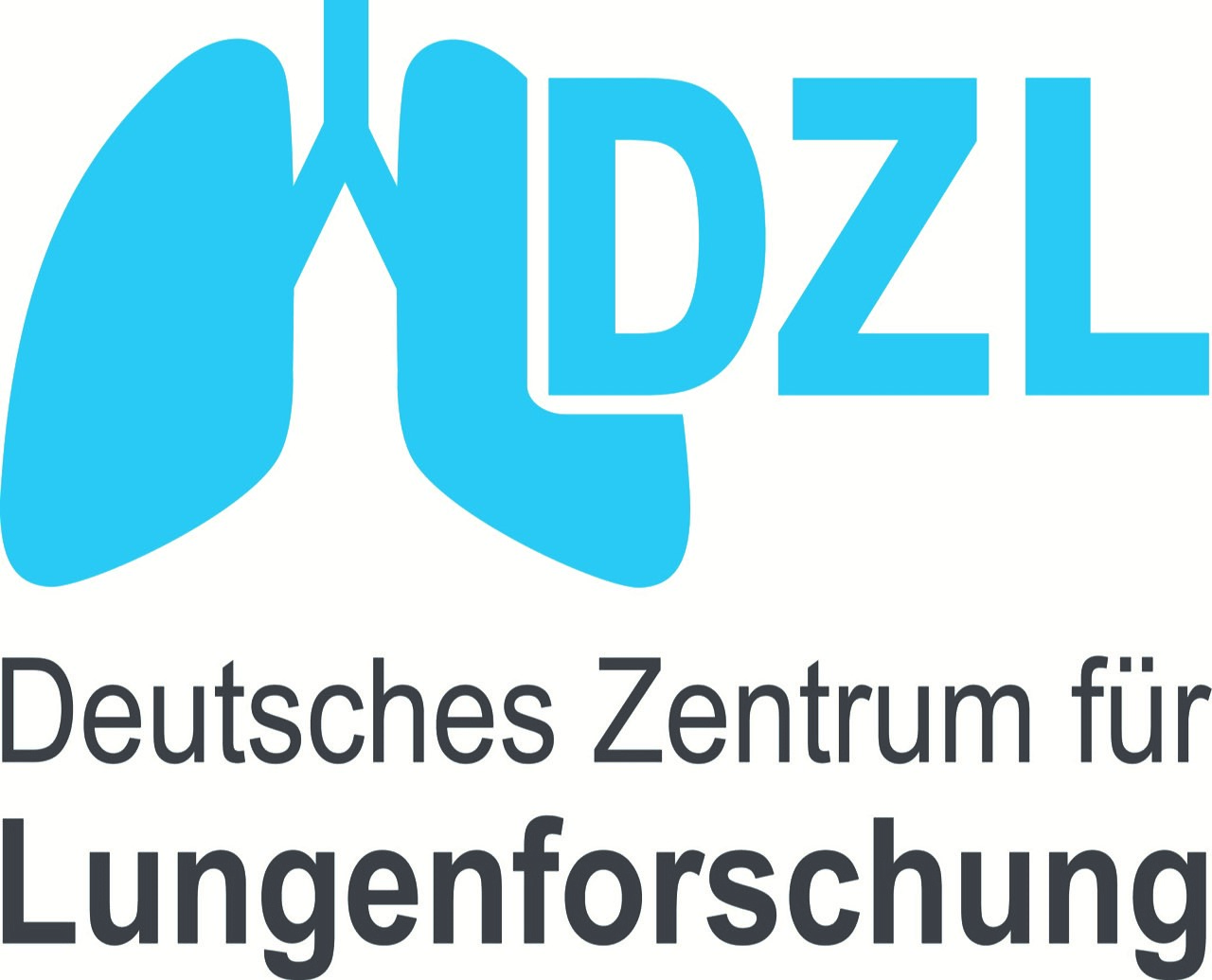Systems Biology of Lung Inflammation
Aiming at a personalized medicine for patients with lung disease, we analyze the multitude of clinical and experimental data, as well as the complexity of human diseases by means of high throughput screening, bioinformatics, and mathematical modelling.
Systems Biology Platform - German Centre for Lung Research (DZL)
 The Systems Biology Platform integrates clinical and patient data with high throughput "-omics" data to develop new in silico models of lung inflammation in pneumonia, asthma and COPD, thereby complementing the "Deep Phenotyping" approach of the German Centre for Lung Research.
The Systems Biology Platform integrates clinical and patient data with high throughput "-omics" data to develop new in silico models of lung inflammation in pneumonia, asthma and COPD, thereby complementing the "Deep Phenotyping" approach of the German Centre for Lung Research.
Website of the German Centre for Lung Research: https://dzl.de/
CAPSyS - Systemmedizin der ambulant erworbenen Pneumonie
BMBF e:med: Maßnahmen zur Etablierung der Systemmedizin
e:Med is a new large-scale research program on Systems Medicine, funded by the Federal Ministry of Education and Research (BMBF) for 8 years.
e:Med brings together leading scientists and exceptional young researchers from all over Germany in the emerging field of Systems Medicine. Systems medicine uses interdisciplinary systems-oriented research on diseases to create a basis for understanding complex physiological and pathological processes for development of innovative personalized diagnosis, therapies, and preventive measures. Key to the appropriate analysis and possibly to the modelling of Big Data derived from information levels such as Genomics, Proteomics and Metabolomics is electronic processing (e:Med) i.e. computerized archiving, analysis and integration of data.
TP04: Experimental modelling and validation of pneumonia pathophysiology
In this subproject, central aspects of pneumonia pathology inaccessible to patient-centered research will be elucidated in highly standardized and well-controlled experimental models in vitro, ex vivo and in vivo to provide homogenous data as starting points for mathematical modeling of pathophysiologic sequences. The experimental models will be designed to parallel the patient’s course of disease or specific aspects thereof. Further experiments will be hypothesis-driven and focus on promising signaling pathways and specific pathogen and host factors. With increasing progress of the mathematical modeling, the project is aimed at tightly interacting iteratively with the mathematical modelers to answer their questions regarding specific pathophysiological sequences of pneumonia that are considered particularly relevant or remain unclear.
Collaboration Partner: Prof. Dr. med. Martin Witzenrath, Charité - Universitätsmedizin Berlin
Cooperation partner’s website: http://www.lunglab.de
JPI-AMR - Joint programming initiative on antimicrobial resistance
BMBF / ERACoSysMed
Project: Prevention and Restriction of Antimicrobial Resistance in Pneumococci by Multi-Level Modelling (Restrict-Pneumo-AMR)
This project aims to understand the mechanisms and distribution of this pneumococcal AMR repertoire at the genetic, bacterial, host and population levels to layout new strategies for risk assessment, prevention and reduction of AMR. In particular, the environmental, immunological and pharmacological drivers of resistance emergence and selection, the genetic population dynamics, as well as the fitness of the new traits in different host conditions will be analysed and modelled.
Cooperation partners:
Finished Projects:
microRNA at the crossroad of lung inflammation, regeneration and cancer (miRSys)
BMBF e:Bio - Innovationswettbewerb Systembiologie (2013-2015)
The aim of the project is to investigate the role of miRNA regulation in signalling and gene regulatory networks related to lung inflammation using an iterative approach of mathematical modelling, bioinformatics, and laboratory experiments. The project is to detect critical miRNAs for lung inflammation in pathological conditions associated to infection and cancer. Other objectives of the project are the development of bioinformatics methods for analysis and construction of miRNA related biochemical networks. The aim of this project is to develop a new workflow, based on the integration of quantitative data via mathematical modelling, to investigate the role of miRNAs in the regulation of lung inflammation, regeneration, and cancer. This strategy will be extremely valuable to propose therapeutic strategies to measure and assess the importance of miRNAs in the fate of inflammatory processes in the lung. Here, lung inflammation is proposed as an ideal case study to develop methods and techniques for application to other inflammatory pathologies.
Cooperation partner: Prof. Dr. Julio Vera-González, Dermatology Clinics, University of Erlangen
Cooperation partner’s website: http://www.hautklinik.uk-erlangen.de/e1585/e1893/e4041
Website of e:Bio: http://www.ptj.de/e-bio
Systems biology of lung inflammation
BMBF Forsys Partner Research Group (2008-2013)
![]() Two major projects will help to lay a solid basis for novel strategies of pulmonary translational medicine and provide expert knowledge and experimental standards for further mechanistic projects in applied systems biology:
Two major projects will help to lay a solid basis for novel strategies of pulmonary translational medicine and provide expert knowledge and experimental standards for further mechanistic projects in applied systems biology:
Project A: Mechanistic analysis and modelling of IL-6 expression
Interleukin 6 (IL-6) is an attractive target for patient-focused systems biology modelling as it modulates pulmonary immunology in infection (e.g. pneumonia), autoimmune disease (e.g. bronchial asthma) and malignancies. It is used as important clinical biomarker of inflammation. We will build a predictive model of receptor-induced IL-6 expression in human lung epithelial cells under experimental conditions of pneumonia and asthma by iterative application of standardized and cohesive experimental examination and application of adequate mathematical modelling procedures.
Project B: Chromatin Mapping analysis and modelling of pulmonary gene expression
Signal transduction and gene expression are thought to be modular. In the second project we try to characterize and understand dynamic genome-wide modules of inflammatory gene expression in lung epithelium. Therefore, based on experience from the first project, human lung epithelial cells will be analyzed under experimental conditions of pneumonia and asthma by transcriptome analysis and chromatin immunoprecipitation on DNA-array (ChIP-Chip) on a whole genome promoter level. This complements different projects that focus on static whole-body epigenome maps and may lead to the identification of strategically promising biomarkers and drug targets in lung inflammation.
Website of the Forsys Partner Network: www.forsys.net
